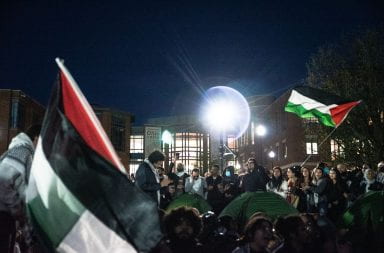
Ohio State research study published in the Journals of Consumer Psychology April 23 suggests why vacations can feel short-lived. Credit: Susan Stocker/South Florida via TNS
Anticipation of a vacation or exciting event can make the fun feel short-lived, a recent Ohio State research study suggests.
The study, published April 23, found the anticipation of future positive events makes them feel further away and shorter in duration, whereas negative events have the opposite effect. Study co-authors Selin Malkoc, an associate professor of marketing at Ohio State, and Gabriela Tonietto, an assistant professor of marketing at Rutgers University, said they tested their theory with a pilot study before Thanksgiving followed by a series of four other studies.
Researchers conducted the pilot study with 510 online participants and looked at the difference in time perception between those who had a positive view of Thanksgiving and those who had a negative view. The study found that when participants had a positive view of the holiday, it felt further away and shorter in duration.
“It really shows the extent to which, as human beings, we’re comfortable and aware of the subjectivity of time,” Tonietto said. “I think the coolest studies are ones that use people’s real lives.”
451 online participants of another study were asked to rate their upcoming weekends as fun, terrible, or OK and indicate on a 0-100 scale how far away the weekend felt. A rank of 0 indicated it felt very near, while 100 felt very far.
Researchers found that an anticipated terrible-rated weekend felt closer to participants and a good weekend seemed further away, while an OK weekend was in the middle, according to the study.
Tonietto said another study had participants watch two five-minute videos. Beforehand, they were told one would be enjoyable and the other unenjoyable. Participants were then surveyed to see how long they expected the videos to be in duration.
Results showed participants expected the unenjoyable video to be longer than the enjoyable one, supporting the theory that negative events are perceived as having a longer duration, Tonietto said.
Malkoc said it’s important to keep in mind the objective duration of an event rather than feeling that it will end right away. She said when looking ahead to positive events such as vacation, many people lose track of the duration of the trip by clumping the days together in their minds.
“A really good way to try and overcome this is to think about each day separately,” Malkoc said. “If you’ve got five days, try to think about each of the five days separately.”
Tonietto said it is difficult to combat the way people perceive time because it is a learned human experience.
“It’s challenging because part of the issue of the effect is that it’s learned from actual experience,” Tonietto said. “We intend to experience time passing more quickly when we’re having fun, and we apply that prospectively and say, ‘Well, I’m going to be having fun, so time is going to fly,’ so it feels really short.”




